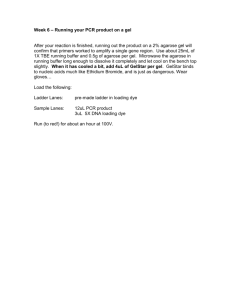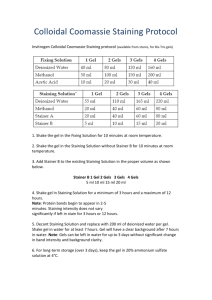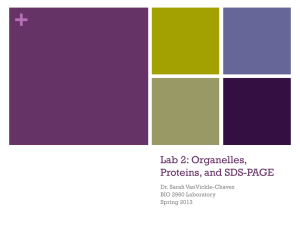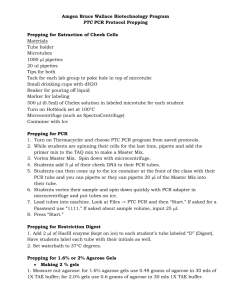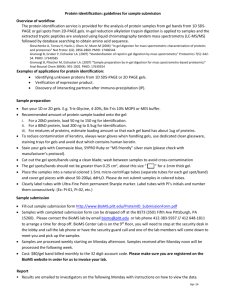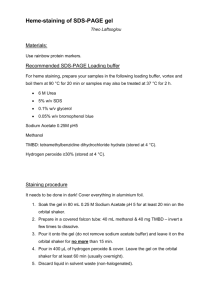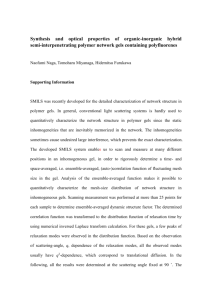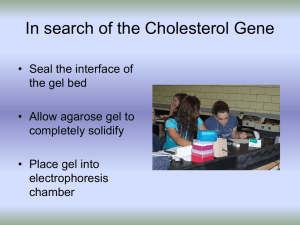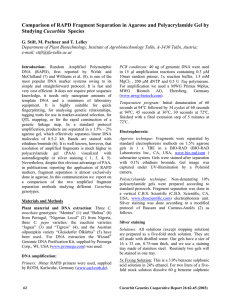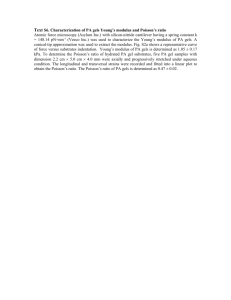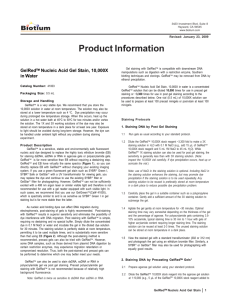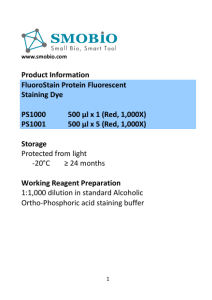word
advertisement
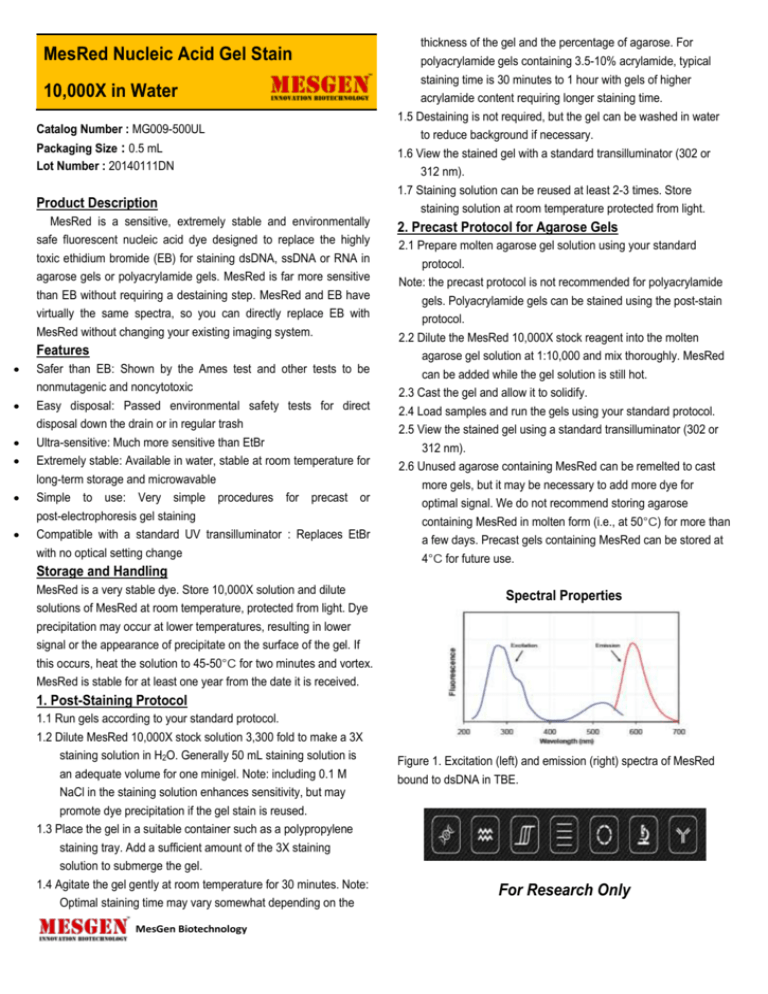
MesRed Nucleic Acid Gel Stain 10,000X in Water Catalog Number : MG009-500UL Packaging Size : 0.5 mL Lot Number : 20140111DN Product Description MesRed is a sensitive, extremely stable and environmentally safe fluorescent nucleic acid dye designed to replace the highly toxic ethidium bromide (EB) for staining dsDNA, ssDNA or RNA in agarose gels or polyacrylamide gels. MesRed is far more sensitive than EB without requiring a destaining step. MesRed and EB have virtually the same spectra, so you can directly replace EB with MesRed without changing your existing imaging system. Features Safer than EB: Shown by the Ames test and other tests to be nonmutagenic and noncytotoxic Easy disposal: Passed environmental safety tests for direct disposal down the drain or in regular trash Ultra-sensitive: Much more sensitive than EtBr Extremely stable: Available in water, stable at room temperature for long-term storage and microwavable Simple to use: Very simple procedures for precast or post-electrophoresis gel staining Compatible with a standard UV transilluminator : Replaces EtBr with no optical setting change Storage and Handling MesRed is a very stable dye. Store 10,000X solution and dilute solutions of MesRed at room temperature, protected from light. Dye precipitation may occur at lower temperatures, resulting in lower signal or the appearance of precipitate on the surface of the gel. If this occurs, heat the solution to 45-50°C for two minutes and vortex. MesRed is stable for at least one year from the date it is received. thickness of the gel and the percentage of agarose. For polyacrylamide gels containing 3.5-10% acrylamide, typical staining time is 30 minutes to 1 hour with gels of higher acrylamide content requiring longer staining time. 1.5 Destaining is not required, but the gel can be washed in water to reduce background if necessary. 1.6 View the stained gel with a standard transilluminator (302 or 312 nm). 1.7 Staining solution can be reused at least 2-3 times. Store staining solution at room temperature protected from light. 2. Precast Protocol for Agarose Gels 2.1 Prepare molten agarose gel solution using your standard protocol. Note: the precast protocol is not recommended for polyacrylamide gels. Polyacrylamide gels can be stained using the post-stain protocol. 2.2 Dilute the MesRed 10,000X stock reagent into the molten agarose gel solution at 1:10,000 and mix thoroughly. MesRed can be added while the gel solution is still hot. 2.3 Cast the gel and allow it to solidify. 2.4 Load samples and run the gels using your standard protocol. 2.5 View the stained gel using a standard transilluminator (302 or 312 nm). 2.6 Unused agarose containing MesRed can be remelted to cast more gels, but it may be necessary to add more dye for optimal signal. We do not recommend storing agarose containing MesRed in molten form (i.e., at 50°C) for more than a few days. Precast gels containing MesRed can be stored at 4°C for future use. Spectral Properties 1. Post-Staining Protocol 1.1 Run gels according to your standard protocol. 1.2 Dilute MesRed 10,000X stock solution 3,300 fold to make a 3X staining solution in H2O. Generally 50 mL staining solution is an adequate volume for one minigel. Note: including 0.1 M NaCl in the staining solution enhances sensitivity, but may promote dye precipitation if the gel stain is reused. 1.3 Place the gel in a suitable container such as a polypropylene staining tray. Add a sufficient amount of the 3X staining solution to submerge the gel. 1.4 Agitate the gel gently at room temperature for 30 minutes. Note: Optimal staining time may vary somewhat depending on the MesGen Biotechnology Figure 1. Excitation (left) and emission (right) spectra of MesRed bound to dsDNA in TBE. For Research Only
